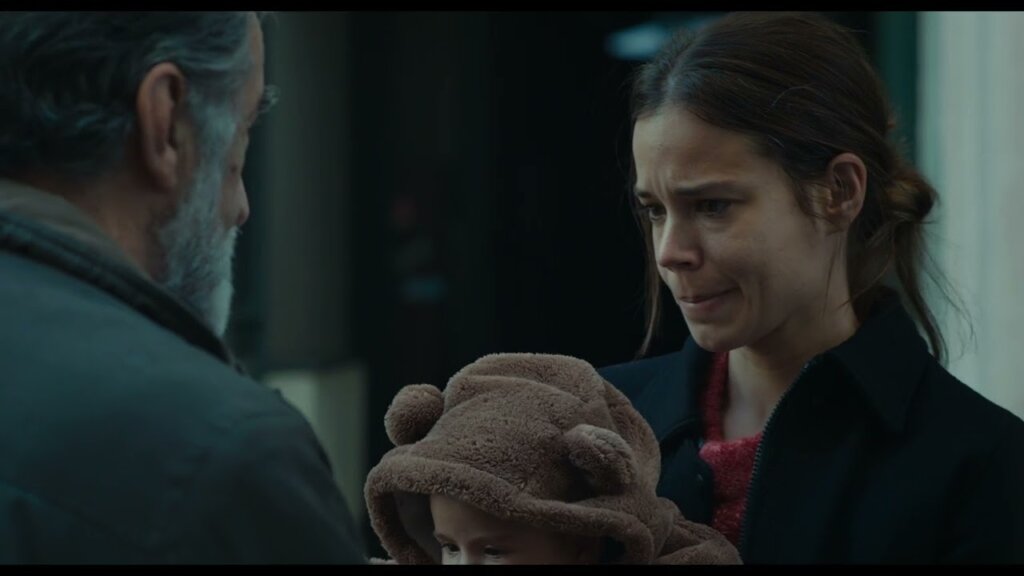Lullaby: The Hidden Face of Motherhood


Written and verified by the psychologist Andrea Pérez
“Congratulations! What fantastic news!” When a woman announces that she’s pregnant, especially for the first time, these are the kinds of words she’s likely to hear. Indeed, smiles, happy faces, baby showers, and a halo of joy and happiness are usually the first things that come to mind when motherhood is mentioned.
Of course, for many mothers, having a child is a great joy. “I’ve never felt a love like it” they often claim. “It’s changed my life.” And, indeed, it does change the woman’s life in every way. However, while having a child can be the origin of many moments of joy, it’s a complex process and can be surrounded by certain experiences that aren’t so pleasant yet that continue to be invisible in society, even today.
We know that pregnancy is a time when many changes take place at different levels. That’s why, as a society, we protect pregnant women and are empathetic to them. But, once they’ve given birth, these changes continue to exist. It’s at this moment that the mothers face new and alien circumstances, which aren’t always as beautiful as they might seem.
The plot of Lullaby (originally titled Cinco Lobitos) is about the hidden face of motherhood, the not-so-kind reality that women frequently find themselves having to live, often alone. The movie was directed by Alauda Ruíz de Azúa. The protagonist, Amaia (played by Laia Costa) faces a brand new kind of motherhood, a world away from the sweetened stereotype that lives in our collective imaginations.
Motherhood as the protagonist of Lullaby
Lullaby begins with the birth of the first daughter of Amaia and Javi (Mikel Bustamante). Completing the cast are Begoña (Susi Sánchez) and Koldo (Ramón Barea), Amaia’s parents. They stay with the couple for a few days after they leave the hospital. Shortly afterward, Javi has to travel abroad for a few weeks. Amaia is overwhelmed at the thought of being alone and decides to move temporarily to her parents’ house.
In reality, the protagonist of this movie isn’t Amaia, Javi, Begoña, or Koldo, nor all of them together. In fact, the undisputed protagonist of the film is motherhood and its invisible face. Indeed, from the first minutes of the movie, motherhood takes charge. In the character of Amaia, we see a young, first-time mother whose partner is absent for work reasons. She finds it difficult to reconcile herself to this fact and the emotional and physical overload begins to take effect on her.
She feels overwhelmed, exhausted, irritable, alone, and afraid. The turning point comes when, after looking away for a few seconds, her daughter falls off the sofa onto the floor. After this, she decides to return to her hometown and turns to her mother as her main source of support. Through Amaia, we discover that raising a child also means guilt, sadness, moments of weakness, loneliness, demands, and misunderstandings.
Begoña and the timeless difficulties of motherhood
Another of the faces of this incorporeal protagonist is revealed through Begoña, Amaia’s mother. Begoña portrays motherhood of a different generation. One in which women, whether they were mothers or not, carried great burdens on their backs, and lacked resources and support.
Begoña herself also faced single motherhood, thanks to the yoke of the machismo of the time. Her husband was present but not involved. Moreover, they lived in a closed Basque society where she couldn’t vent her feelings. She depicts the fact that mothers can still feel guilt and regret even after their children are grown.
The movie shows us that motherhood is a long-distance race where there’s no finish line. It’s an emotional charge that continues through time.
The portrayal of the two female characters in the movie and their relationship makes it clear that some negative feelings are practically inherent to motherhood. Indeed, it’s often not the bed of roses that it’s painted to be.

Other hidden taboos and how to deal with them
From the day a woman decides to become a mother, she faces many judgments and taboos. In fact, these start even before conception.
Added to the obstacles of motherhood are external pressures. Expectant mothers often find themselves receiving unsolicited opinions. For instance, what education will they give their baby? Are they going to breastfeed? They’re frequently harassed by relatives who, although loaded with good intentions, hinder more than help. In effect, the mother-to-be is criticized both for being a woman and taking the decision to become a mother.
Luckily, there are mechanisms that can help them lead their new lives in a more pleasant and enjoyable way. To begin with, the fact that the hidden face of motherhood is now becoming visible is a great step on the social level. By sharing their experiences and demystifying motherhood, women find comfort and support, thus freeing themselves from many misunderstandings.
Another factor that can be worked on is the delegation of responsibilities. Delegating relieves the physical and emotional burden of being a mother. Although complicated, it’s necessary for mothers to impose limits on those they feel are judging their parenting skills or who are more intrusive than they’re willing to tolerate. Accepting that, like any human being, they’re making and will continue to make mistakes can help them lighten the load of guilt.
Finally, mothers should always remember that, while they’re responsible for the care of their babies, they’re also independent people with their own needs that must be attended to.
All cited sources were thoroughly reviewed by our team to ensure their quality, reliability, currency, and validity. The bibliography of this article was considered reliable and of academic or scientific accuracy.
- Everingham, C. (1997). Maternidad: Autonomía y Dependencia: Un estudio desde la psicología (Vol. 6). Narcea Ediciones
- González, C. T. Culpa y maternidad, una pareja soluble: variables psicológicas que influyen en el afrontamiento de la culpa.
- Oiberman, A. (2004). El rostro oculto de la maternidad: El desarrollo del maternaje. Rev. univ. psicoanál, 149-168
This text is provided for informational purposes only and does not replace consultation with a professional. If in doubt, consult your specialist.








